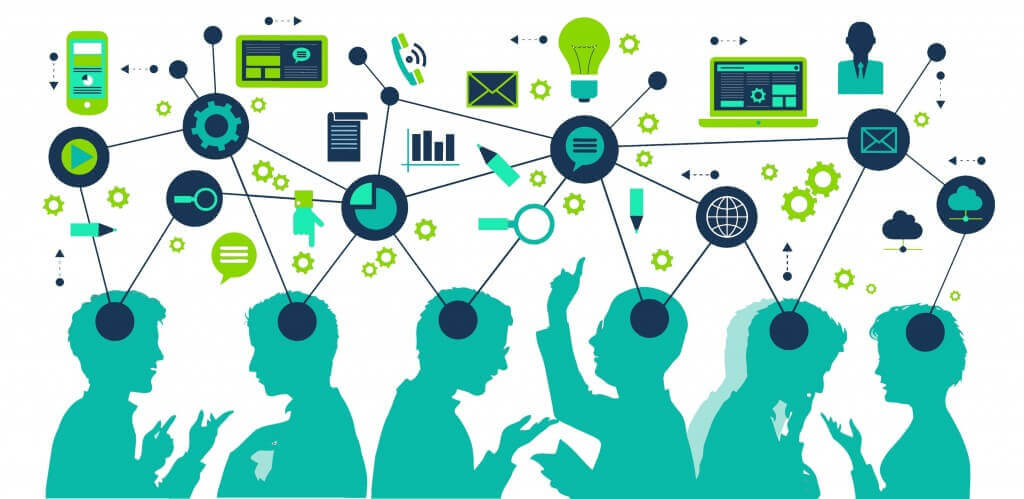
Some hotels have it, others do not. There is a lot of talk about it, but, unfortunately, there are many variations and definitions of what Customer Relationship Management (CRM) really is.
NB: This is an article from NextGuest
Because today’s customers are overwhelmed with options and information, it’s more important than ever to build strong customer relationships and nurture them before, during, and after those guests stay on your property. Many CRM systems can be used to solve operational issues, as well as gather data on customers and then use that data to bring those customers back time and time again. In order to understand where CRM can take your hotel, we must first start with the basics of understanding what it is and why it matters.
THE OVERWHELMED CUSTOMER
Today’s customers are overwhelmed. They’re bombarded with countless offers and information every day. Although studies show that around 70% of consumers are more likely to purchase something when they’re presented with an offer personalized towards them and their needs, around 80% of all marketing campaigns still have a very low degree of personalization. In order to cut through the marketing buzz, a successful CRM system needs to offer campaign capabilities that provide 1:1 personalization and attribute-based offerings by combining real-time intent and historic customer data. By carefully defining target segments and personalized messaging, conversion rates and success rates of campaigns will increase overall.
THE NEED FOR CRM
The history of CRM software is extensive, with roots dating back to the 1980s, where early attempts were made to create digital Rolodexes and database marketing solutions. Today, there are many types of CRM solutions. Naturally, each solution has a different focus. For example, sales automation, campaign automation, customer complaints automation, and more. However, not all CRM systems are truly managing customer relations. Some vendors get creative with their messaging, claiming to have a CRM platform, although the solution is really just a basic email marketing. This makes it difficult for hotels to find the right solution, as different vendors use similar terminology for entirely different offerings.
Adding to these misconceptions is the fact that there are both industry-specific and generic solutions in the market. A generic solution is just as the name indicates: a solution that neither understands industry-specific processes nor what data fields are needed in hospitality. It also does not come with any integration possibilities for existing data sources, such as property management, central reservation, or Internet booking engine systems.
WHY DOES A HOSPITALITY-SPECIFIC CRM MATTER?
A hospitality-specific CRM platform is designed to solve industry-specific needs and has the ability to integrate with the hotel’s PMS, CRS, IBE, and ORM systems. The CRM platform will, therefore, take away a lot of the complexity from these processes, as well as a large part of the risk.
Another reason a hospitality-specific CRM solution is important for hotels is because of the best practices and benchmarks that are specific to the industry. A hotel’s CRM platform should have industry-specific knowledge and experience built in, knowing what will work best and being able to easily keep in contact with the hotel’s most valued customers.
PERSONALIZATION IN THE CRM LANDSCAPE
The CRM landscape is vast and offers more options than ever before. There are cloud-based solutions, on-property solutions, industry-specific solutions and more-generic solutions. Despite this abundance of options, the industry is still lacking some key functionalities that are required to take on today’s challenges. Most important is the need for highly personalized and relevant marketing campaigns based on customer intent, behavior, and needs.
Often, campaigns are not as successful as they could be simply because too many campaigns are sent out that don’t address the target audience’s specific needs or contain relevant messaging. Tailor your hotel’s messaging to each and every customer, and you will truly see the effects of your CRM system at work.
CAN I USE A CRM SYSTEM TO ADDRESS OPERATIONAL PROBLEMS?
Many organizations struggle with finding the root cause of operational problems and coming up with actionable solutions. For example, if a hotel sees an increasing number of OTA bookings, what can be done to mitigate this? What CRM campaigns could isolate and address the problem?
Many times, management, operations, and marketing departments are using different tools. As a result, if the operations team identifies a problem, it can be difficult for the marketing team to create a campaign that addresses the issue, simply because they’re not looking at the same data, or not looking at it in the same way. Therefore, an effective CRM platform must suggest intuitive, data-driven campaigns that use the same data and insights seen by all teams. In other words, the CRM system needs to combine analytics and campaign management in order to support operations, marketing, and management teams with a single solution.
GUIDANCE IS GOLD
Another important feature to look for is guidance — the CRM system doesn’t just provide data but offers information. The data is shown in context to the end-user, guiding and helping employees meet their goals. An effective CRM system uses best practices and data to allow new users to jump-start their marketing efforts and benefit from the learnings and experiences of industry experts.



